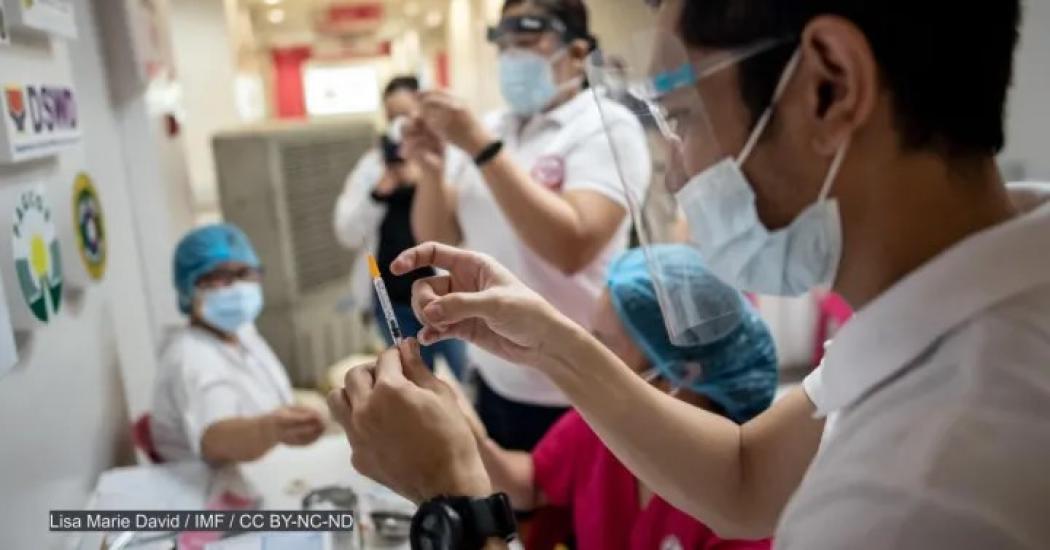We Must Involve Frontline Health Workers in Health Workforce Policy

Health workers at a hospital in Malabon, Philippines. Photo by: Lisa Marie David / IMF / CC BY-NC-ND
Applause for health workers is not enough. If we want the response to the next pandemic to be different, we must listen to health workers and take action to support them.
This week is World Health Worker Week. As we celebrate, many of us will reflect on front-line health workers’ tireless efforts over the past year to defeat COVID-19 — from community health workers communicating public health messages to doctors monitoring patients in ICUs.
And, yet, health workers have suffered greatly. More than 17,000 health workers have died from COVID-19, and thousands more are on the verge of burnout as overworked witnesses to unfathomable suffering and loss of life. Even before the pandemic, the world faced a shortage of 18 million health workers, mostly in low- and middle-income countries, as well as other health workforce challenges.
This is an excerpt of an article that originally appeared on Devex on April 7, 2021. Read the full article here.
The authors all serve on the Frontline Health Workers Coalition steering committee.
